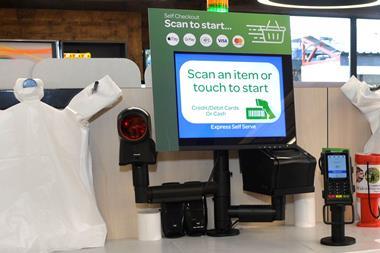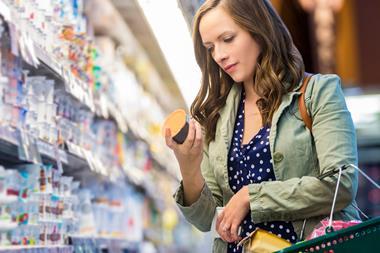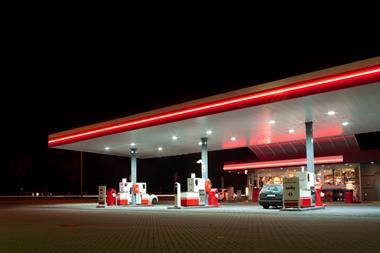A clause to remember
The text book advice when it comes to contracts is that you should get out the magnifying glass and then run it past your lawyer. But most people don’t.
And I always say that the only time you would read the terms and conditions on your airline ticket is when you are stuck at an airport (which, as this is being written, is probably what a lot of people are doing as all UK airports are closed owing to volcanic dust clouds).
However, there are two crucial clauses you must read in the terms and conditions on any service contract: one is its duration/rollover terms; and the other is the cancellation clause and any penalties attached.
Kirit Patel, who took over a Londis (Musgrave) service station at Longdowns, Penryn, in Cornwall in 2006, remained with the group for a little over two and a half years and then switched to Booker’s Premier. He thought the Londis rep had told him that he only had to stay within the group for a year and could then leave without penalty. Didn’t work out that way though.
"I had a very old fascia sign," explains Kirit. "And the light wasn’t working. They didn’t come for over a month after I left so I painted over it." He then received a bill for £1,163 which was for what he owed Londis for PayPoint plus £810.75 for the fascia removal.
He paid the PayPoint bill but not the fascia removal part which led to him receiving a recorded delivery letter telling him to pay up or Musgrave would commence legal action.
When he rang me I advised him to dig out the contract and have a good read of it there was sure to be a clause relating to fascia removal and costs.
The upshot of the story is that Kirit paid the £800-odd. He isn’t unhappy with the outcome though.
"I’m laughing. I think Booker is better than a symbol group. It delivers the goods, has a flexible policy for goods that don’t sell and the margins are 2% better!"
Is the price really right?
The price of petrol is on everyone’s lips again. It must be because I overheard two expensively-clad ladies at the gym discussing it.
There is around 10p difference per litre in my neighbourhood between my two closest petrol stations the Jet is literally 10p cheaper for unleaded than the Total with a price today of £1.19. Of course, thanks to the Chancellor’s so-called green tax accelerator in addition to VAT and duty, the price was never going to be low.
Back to my gym bunnies. The English one said to the Scottish one: "It was £1.28 you wonder why it always goes up? It’s the same stuff." A better question would have been: "Who gets it?"
I could have jumped in and pointed out that, if your unleaded costs, as mine did, £1.19.9, then 57.19p would be duty; 39.85p is accounted for by product; VAT claws in 17.86p and the retailer/delivery gets 5p.
I wonder whether any of you have ever considered putting a sign board up with this breakdown on public display?
There have been many occasions when a passing petrol pump stranger on a forecourt has raised his/her eyebrows at me and then at the price pole. They think you’re getting it all. Probably not you at the till, but your boss, he’s raking it in.
They probably think you keep spare stuff in tanks in your garden (mansion, obviously) so you can stock up when the oil-rich nations have their occasional sales.
For all the RMIP’s (PRA’s) laudable efforts to publicise the fact that the retailer gets diddly-squat, I think you should all try passing on the carve-up at the point of sale.
By the way, Scottish gym bunny gets the final say: "£1.28?" she said. "Is that good or bad? I never look at petrol prices. You can’t do anything about it."
Anyone for tennis?
The PayPoint argument over footfall between my anonymous February correspondent and, erm, PayPoint, continues. Mr Anon wrote to say that his PayPoint commission added up to the grand total of around a hundred quid gross for handling over a thousand transactions (he doesn’t do e-top-ups and can therefore analyse his returns on bill payments). He itemised all the extra costs in manpower, banking, insurance, etc and the queues which resulted in "other profitable customers getting fed up and going elsewhere". He estimated that up to two-thirds of bill payment customers didn’t buy anything else and he started to levy a surcharge to recoup costs (hence the anonymity).
I gave PayPoint the right to reply in March and it pointed out that independent research (by Him) showed that 78% of retailers believed that the service led to increased footfall. It also showed that only 18% of store visits were primarily to pay a bill, making 82% going there for another purpose. There were average spend per visit comparisons as well which showed that, over an average week, a bill payment shopper as opposed to a purely convenience shopper, spent 157% more.This prompted a response, on April Fools Day, don’t know if that was deliberate, from Mr Anon who writes: "There is no doubt whatsoever that PayPoint increases footfall. It does! The 22% of retailers who don’t believe that are wrong. The problem is that, because of the transaction rates paid, it does not necessarily increase profitability and most retailers will end up doing an awful lot of work for nil reward."






























No comments yet